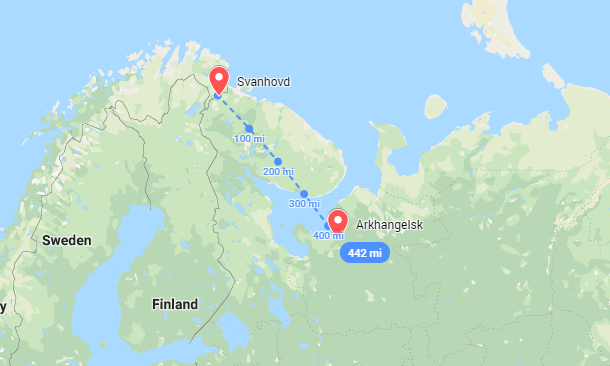Days after the Kremlin's nuclear-powered missile exploded, killing seven and leading to evacuations, Norway detected tiny amounts of radioactive iodine in the air near the northern part of the country bordering Russia.
According to Norway's nuclear safety authority (DSA), the radioactive iodine was detected between Aug. 9-12 at its air filter station in the border town of Svanhovd, just under 450 miles from the Arkhangelesk region of northern Russia where the deadly blast occurred on August 8.
"At present it is not possible to determine if the last iodine detection is linked to the accident in Arkhangelsk last week. DSA continues more frequent sampling and analysis," said DSA.
Rosatom, Russia's state nuclear agency, said on Saturday that the deadly blast involved "isotope power sources," with no further details given.
According to Reuters, detecting radiation is not unusual in Norway, as it's monitoring stations routinely pick up radioactive iodine around half-a-dozen times per year from unknown sources.
On Tuesday, however, Russia's state weather service reported a 16x spike in radiation levels in the city of Severodvinsk. Meanwhile, first responders who treated victims of the accident were rushed to Moscow for medical examination according to Russian state-owned news outlet TASS.

No comments:
Post a Comment